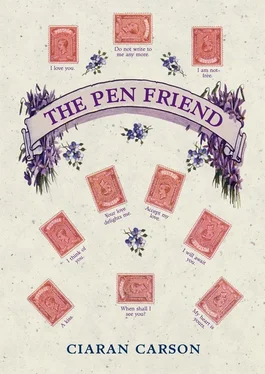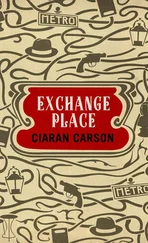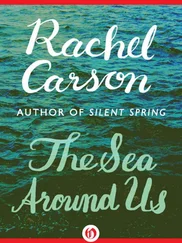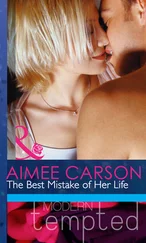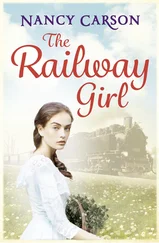As the noise of the helicopter dwindled away into the distance I heard a blackbird singing in the garden of Ophir Gardens, and I wondered what went on in the blackbird’s mind, as it broadcast its lovely aria of loops and spirals, whether it merely delivered a territorial claim, or if it too revelled in the beauty of its song. I was still in that heightened state which sometimes accompanies lack of sleep when your postcard arrived, and it took me only a matter of minutes to recognise the source of your message. Only an infinite present . It was, again, a reference to Yves Klein. On 9th April 1951, he was in Madrid when he witnessed a display of American supersonic aircraft. They appeared like silver knives in the blue sky, he wrote in his diary that day, and traversed the hemisphere in a split second. Soon time will be conquered, and then we will no longer have past nor future, only an infinite present. I am determined to put all that I write, as well as all that I say, in the present — a perpetual present, said Klein. Later, when he presented his monochrome blue paintings to the public, he responded to accusations of charlatanism by saying, In the atomic era, where all material things can suddenly disappear — blasted out of existence — leaving room for only the most abstract things imaginable, one might be permitted to recount the following story, from ancient Persia:
One day, a flute-player began to play only a single continuous note. After he had repeated this performance for some twenty years, his wife suggested he might profitably listen to some other flute-players, who produced a range of sounds — high notes, low notes, notes in sequences, and so on — that might perhaps be more interesting and melodious. To this, the flute-player replied that he should not be blamed for finding the one note that others still sought.
And it sometimes occurs to me that all these letters of mine are but an attempt to discover one note, the one blue note that might explain why you did what you did, why you left me the way you did, because the more I think of it, the more inexplicable does it become to me. More inexplicable than it was then, for you were wholly guilty to me then, and so I burned your letters, because I wanted you to be dead to me. But little by little your postcards have begun to change all that. For you are very much alive, and I wonder what made you choose this card, of Barkston Gardens Hotel, Earls Court, London, a photograph taken at noon on a summer’s day — the trees are in full leaf, the sun almost directly overhead, as I can see by the shadow of one of the parked cars — a scene of almost spellbinding banality. Yet there is something eerie, almost sinister about it. It is noon, yet the street is deserted. Out of curiosity I looked up the hotel on the Internet, and I see it is still a going concern, though it is now described as being in South Kensington, which I daresay is more fashionable than Earls Court. But this place looks like a location for a noir spy thriller, photographed at a time which must long predate our relationship. As you know, I am not expert in cars — I didn’t drive when I knew you, though I did learn, after my father’s death — but, apart from the venerable convertible parked in the right foreground, the cars have a mid-1960s look about them. Let’s say 1965. And then I remembered your telling me that your mother ended her life in 1965 in an Earls Court hotel, that she had been saving her medication for months, that she had booked herself into the hotel for a weekend, that she had said goodbye to you that Friday morning as you left for school — no, she had kissed you, something she kept only for special occasions, you thought it strange at the time — and had taken an overdose later that night. She was found the next morning when the maid came to do up the room.
I cast my mind back to that night in New York when I thought you bore the aura of your mother’s perfume, hawthorn blossom after rain, and you told me of your father’s time in the Erinoid factory at Lightpill, how he would lie awake at night listening to the groans and clanks of the goods trains, their whistles sounding in the dark like cries of happiness or sadness, and then he would hear the triumphant shriek of the Great Western express as it rushed past on its way to London, the long plume of its smoke borne like hawthorn blossom against the night sky. And he would think of you then, and of your mother. He didn’t really speak about it until a couple of weeks afterwards, you said, and even then I wonder if he was speaking about her at all. You know, Nina, he said, one has to follow one’s instincts. And he told you a story, how during the War he was faced with a choice, like that presented to a bomb-disposal expert, whether to cut this wire or that, except in this instance he had to decide quickly whether a telephone message received from a known double agent was a bluff or a double-bluff, whether the information was true or false. The decision he made resulted in the death of four men. I trusted my instinct, he said, and I cut the wrong wire, in a manner of speaking. But I had to trust myself, because if you don’t trust yourself, who will? And there will be times when you are wrong, but at least you can say that you are true to yourself, Nina, said your father. I took it that he referred to some other wrong choice in his personal life, or to my mother’s suicide, you said. Or that perhaps the two were connected.
Years later, when I suspected that he had been unfaithful to my mother during those two years in Stroud, I thought it unlikely that she would have condemned him for it; she was not given to those sort of moral judgements. But she did pride herself on her judgement of character, her judgement of situations, and the parameters that people set themselves. She’d made a career out of it. That’s what her colleagues used to say about her, that she had great judgement, a great instinct for doing the right thing. I used to wonder what that meant, maybe it’s some kind of epitome of what you are, that every choice is a summary of all the decisions you make in the past, you said, and I was struck by your use of the present tense, as if the past were somehow revisited, perhaps continually revised, by present thoughts, words, or deeds. Let’s assume she finds out about my father’s infidelity, if that indeed were the case, you said. I think she would have judged herself more harshly than him, because she had misjudged his character, someone she thought she knew as well as herself. That was what disturbed her most. And who am I to question that? How can we question our parents’ instincts? you said. For it was those instincts that brought us into being.
Prompted by the memory of your father, I’ve taken up another Dutch-made pen, one from the same batch of ‘new old stock’ that included the Merlin. Like the Merlin, it languished in the time capsule of a Delft stockroom for some fifty-seven years, never inked until it came into my hands, and, apart from some gibberish written as a test run, these words concerning itself are the first it has written in its life, its purpose unfulfilled until now, as I inscribe its name, CIBA, on this page. It’s an elegant little pen, given an almost funereal dignity by its black and pearl-grey livery, and I am reminded of standing at the grave of my own father, as I did two months ago on the anniversary of his death, gazing at the silver-grey lettering engraved on the black marble tombstone: Seoirse Mac Connmhaigh, as he styled himself, not the George Conway of his birth certificate. Through Irish he had become another person.
At the funeral it was remarked, by family friends and relatives I had not seen for years, how much I looked like Seoirse, or George, depending on what side they came from; it had never struck me, for I always thought I took after my mother. But when I looked in the mirror that night I could see a resemblance I had never seen before, and saw in my own face his bone structure, the grey eyes that were like his eyes looking back at me. I’d been given the privilege of casting the first spadeful of earth into the grave, and, as it pattered on the lid of the coffin, I thought of an expression that sometimes occurred in the old Irish stories he told me as a child. Fód a bháis , the sod of his death: the place where the hero is destined to die, explained my father. I imagined a patch of ground the size of a boot-sole which when trod upon opens a portal to the next life. Later on, I thought of a landmine. There is no avoiding one’s sod of death, no matter what road we take in this, the journey of our lives, whatever purposeful meanderings or deviations, whatever U-turns or whatever sidetracks we make, the sod of death awaits us all, as surely as the CIBA pen, by whatever chain of tiny accidents, has reached my hand. Nor would I have looked for the CIBA, had I not been moved to become a collector of pens that day I saw my father’s Conway Stewart, or one which resembled his, in the dusty annexe of an auction room.
Читать дальше
